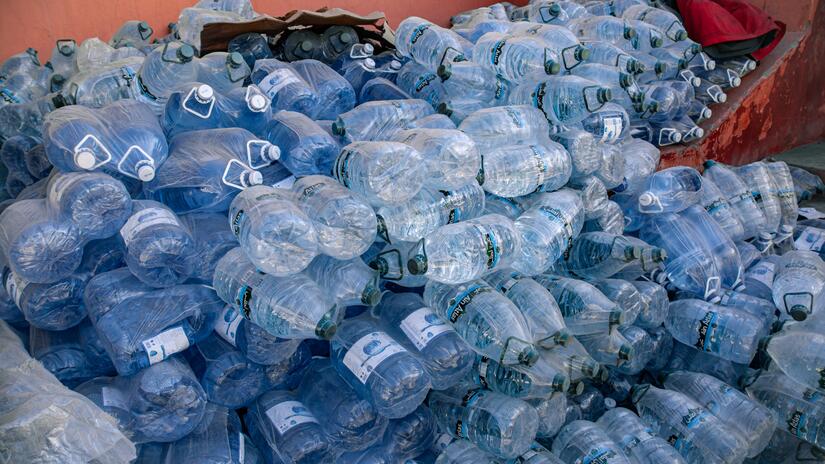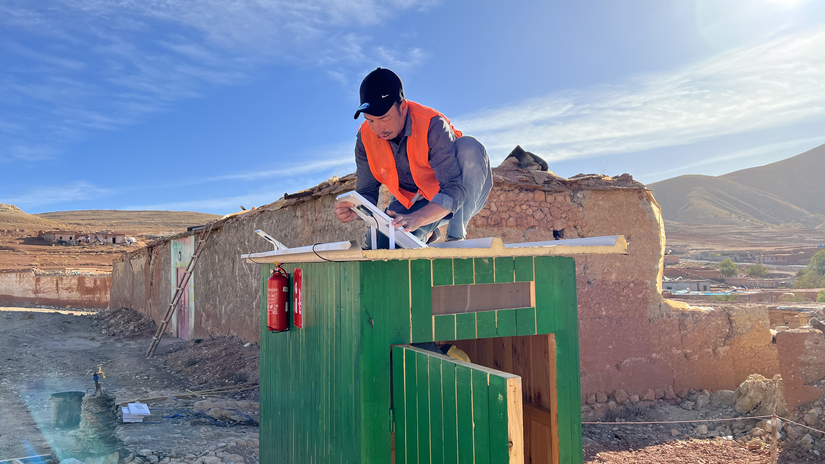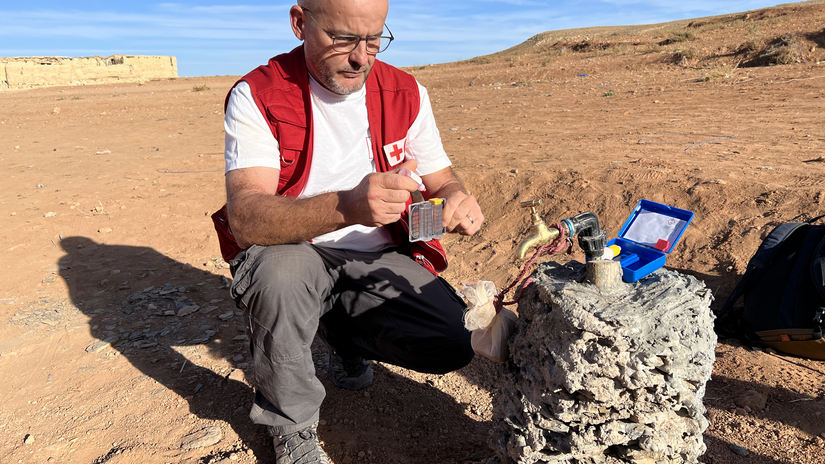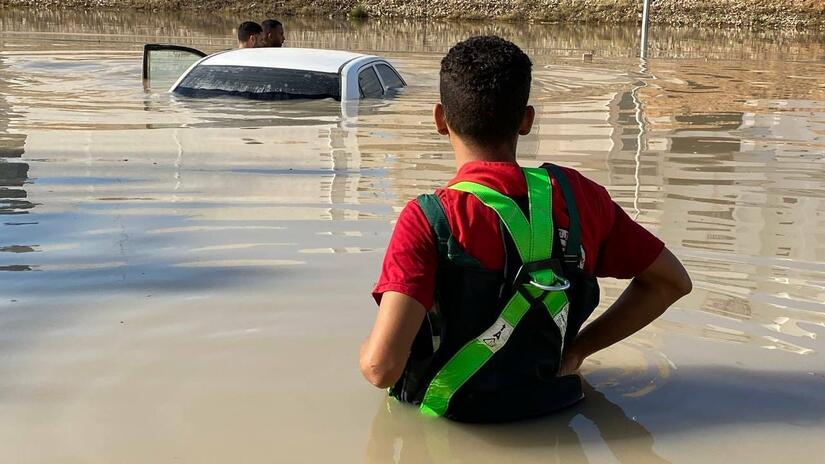Disasters come in many forms, from the earth-shattering violence of earthquakes to the relentless inundation of floods. Amid the chaos and destruction, one critical need transcends the specifics of the catastrophe: access to clean water.
The people of Morocco and Libya came face-to-face with this reality after a 6.8-magnitude earthquake struck Morocco on September 8, 2023 and then devastating floods that overwhelmed parts of eastern Libya a couple of days later following a massive storm.
In the immediate aftermath of these two disasters, dehydration became a threat, which is especially dire for vulnerable populations like children and the elderly. However, the dangers extended far beyond thirst.
“Contaminated water, a consequence of disrupted infrastructure or floodwaters spreading sewage, becomes a breeding ground for waterborne diseases like cholera and dysentery,” says Jamilee Doueihy, a water, sanitation and hygiene (WASH) senior officer for the IFRC in the Middle East and North Africa region.
“These diseases can quickly overwhelm already strained medical resources, adding another layer of suffering to an already devastated community.”

Following the September 2023 earthquake in Morocco, there was little choice but to bring in bottled water to communities whose wells and water systems were destroyed. The Moroccan Red Crescent brought thousands of bottles like these to a remote communities by truck.
Photo: Benoit Carpentien/IFRC
A delicate balance disrupted
Disasters disrupt the delicate balance of water infrastructure. Earthquakes can rupture pipes and damage treatment plants, while floods can leave them submerged and inoperable. This loss of access to a clean, reliable water supply creates a ripple effect, impacting sanitation, hygiene, and the ability to prepare food safely.
In the immediate aftermath of a major catastrophe like the massive, sudden flood in Libya, dead bodies near or in water supplies can also lead to serious health concerns.
The impact goes beyond immediate health concerns, however. Without water for basic needs, people struggle to maintain hygiene, increasing the risk of infection. Displaced communities facing water scarcity often resort to unsafe alternatives, further jeopardizing their health. Water scarcity can also stall recovery efforts, as people are forced to spend time searching for water instead of rebuilding their lives.

A volunteer with the Moroccan Red Crescent puts the finishing touches on a shower stall for a community that lost nearly all its access to clean water following the September 2023 Earthquake.
Photo: Justine Touaux/IFRC
The good news is that providing clean water is a powerful intervention in times of disaster.
“In both Morocco and Libya, water was an essential part of the relief efforts during the initial phase of the two emergencies,” Doueihy says.
In many temporary settlements, which sprang up as people left their unsafe homes, running water and safe drinking water were simply not available. People also lacked access to toilets and sanitation facilities.
Along with first aid, emergency tents and other critical supplies, therefore, the Moroccan Red Crescent, the IFRC and other partner National Societies delivered hygiene kits and installed temporary WASH facilities (toilets, showers, water points and incinerators) for people living in temporary settings.
In Libya, meanwhile, the Libyan Red Crescent — along with partners in the Red Cross and Red Crescent Movement — addressed the immediate water, sanitation, and hygiene needs by distributing more than 240,000 bottles of waters and roughly 6000 hygiene kits, among other things.

IFRC water, sanitation and hygiene delegate Gregory Gonzalez tests the quality of a newly installed water point in a remote Moroccan village following the September 2023 earthquake.
Photo: Justine Touaux/IFRC
Other National Societies supported the efforts. The German Red Cross, for example, supported the installation of two water treatment plants, which were later replaced with filtration systems that better respond to evolving needs. To date, five simple desalination plants have been installed, in addition to the maintenance of groundwater wells, among other efforts.
The next big challenge, Doueihy says, is to help communities develop longer-term solutions.
“We provided clean drinking water for the affected population, but the gradual shift from emergency phase to a long-term recovery phase means that sustainable solutions – such as repairing damaged infrastructure – are needed to restore water security and the communities’ ability to access clean water.”
Water security is not a luxury in the face of disaster, it's a lifeline. By prioritizing clean water access in short-term and long-term disaster response, we can save lives, prevent disease outbreaks, and empower communities to rebuild.
-
Support the people of Morocco and Libya on their way to recovery by donating to the two Emergency Appeals: Morocco: Earthquake and Libya: Storm Daniel.






